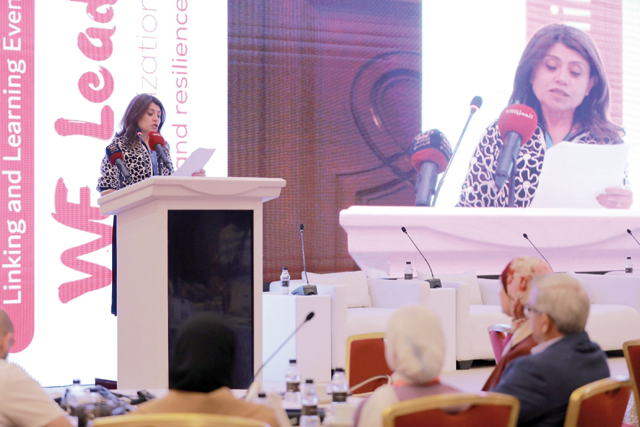You are here
France’s candidate to lead WHO calls for long-term solutions to address refugee healthcare needs
By Khetam Malkawi - Dec 10,2016 - Last updated at Dec 10,2016

Philippe Douste-Blazy
AMMAN — Addressing the healthcare of refugees and migrants needs to be through a long-term solution where the international community — not only the host countries — shoulder the responsibility, said one nominee for the World Health Organisation’s (WHO) director post.
Philippe Douste-Blazy, France’s candidate to the post, said that if elected as WHO director, he will work towards setting up a global taskforce for the health of migrants and refugees, as there should be a mechanism to ensure having long-term funding for that purpose.
“Innovative funding is what we need today,” Douste-Blazy said in a recent interview with The Jordan Times during his visit to Amman, where he also met with Jordanian health officials.
He noted that WHO should be the organisation that defines health as a “political priority” and ensures universal access to medicine and drugs.
As director general, the former French foreign and health minister said, he would focus on five areas of priorities to strength and bolster WHO work.
These priorities are ensuring that WHO responds effectively to emerging and re-emerging infectious diseases; bolstering health systems to implement universal health coverage; increasing the availability, affordability and access to essential medicines; tackling the growing challenge of antimicrobial resistance to ensure more effective management of demand for and use of antimicrobial agents; and strengthening surveillance of drug resistance and antimicrobial consumption in humans and animals and increase the supply of new drugs, diagnostics and vaccines.
The fifth priority, he said, is to tackle the unprecedented growth of non-communicable diseases, especially ensuring that socioeconomic issues, cultural aspects and gender-related factors are better taken into account in the development of health projects.
According to Douste-Blazy, antimicrobial resistance should be tackled, and WHO should be involved in a global awareness campaign regarding the use of antibiotics.
“Without action in this regard, we are going to lose all the health gains that humans have been working on over the last century,” he warned, adding that 80 per cent of the antibiotics that humans consume come from eating meat. He noted that today many producers give antibiotics to animals, and when humans eat meat they eat antibiotics.
Since 1987 no major class of antibiotics have been produced, Douste-Blazy explained, adding that WHO has to support a technical platform in which “we can make incentives for manufacturers who are going to produce new antibiotics”.
Meanwhile, Douste-Blazy stressed the need to address gender-based violence through a comprehensive global strategy.
“Gender-based violence is also one of the main public health issues that should be addressed with other concerned UN agencies,” he said.
Addressing this issue needs a strategy that includes education, having trained public health workers who are dedicated to that matter, and empowering women to report domestic violence.
As for women’s and reproductive health, the WHO candidate said the sexual and reproductive health paradigm necessitates understanding women’s individual experiences and constraints and the social factors that influence sexual and reproductive health across their lives.
“Reproductive rights are recognised as valuable ends in themselves, and essential to the enjoyment of other fundamental rights,” he said, adding that the importance of reproductive rights is enshrined in a wide range of frameworks, including the UN Convention on the Elimination of All Forms of Discrimination Against Women, the Programme of Action of International Conference on Population and Development, the Beijing Platform for Action, and the Sustainable Development Goals.
These frameworks converge in affirming that the empowerment of women, gender equality, the rights and empowerment of adolescents and youth, and the universal access to sexual and reproductive health and reproductive rights, must continue to be placed at the heart of sustainable development.
Related Articles
AMMAN — Deputy Prime Minister and Foreign Minister Nasser Judeh on Tuesday met with former French foreign minister Philippe Douste-Blazy and
AMMAN — The Arab Network for Civic Education (ANHRE), organised a conference on Sunday titled “We Lead towards the Realisation of SRHRs and
WASHINGTON — Newly vaccinated travellers enjoying a return to trips abroad may find a drug-resistant "superbug" hitching a ride in their gut


















